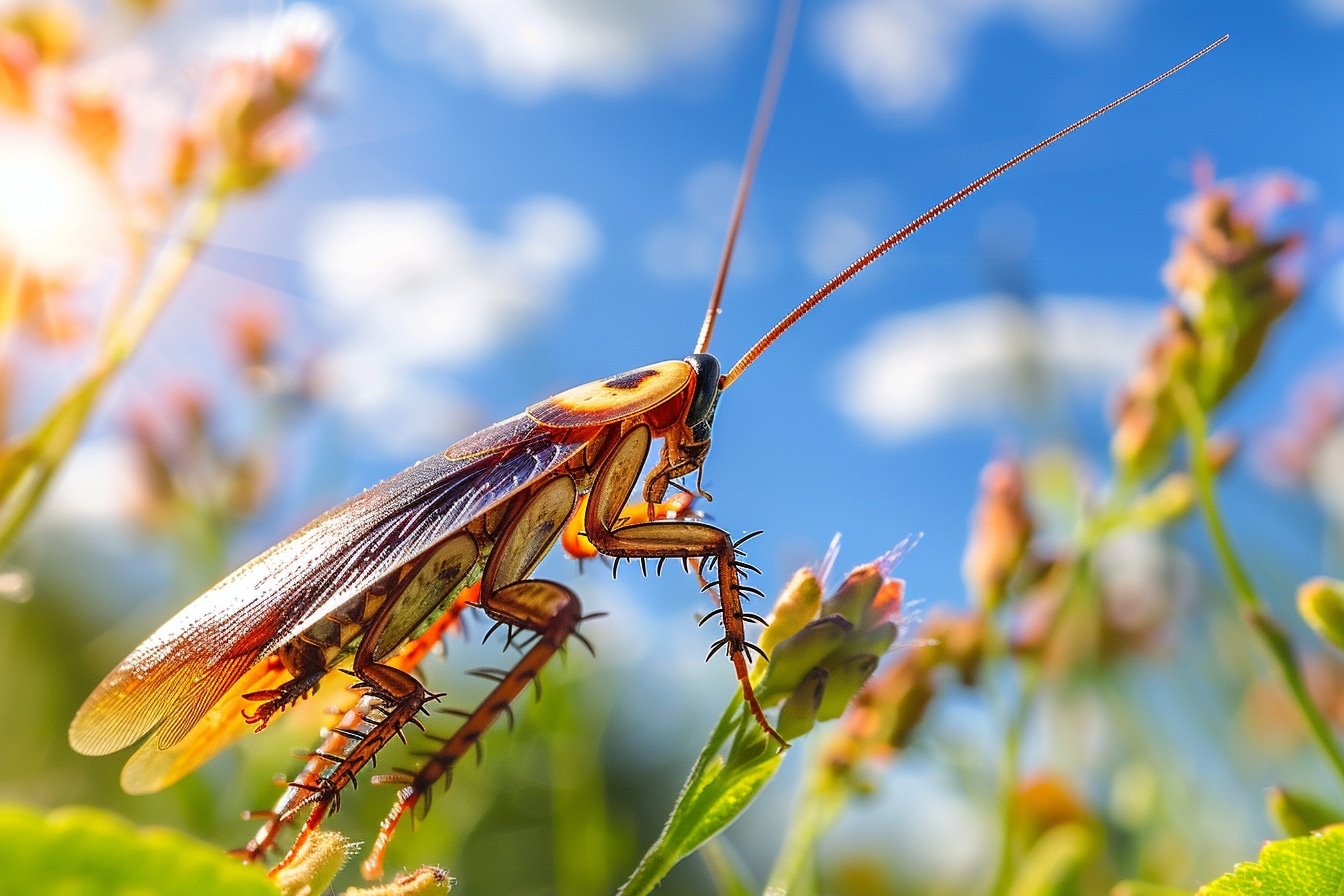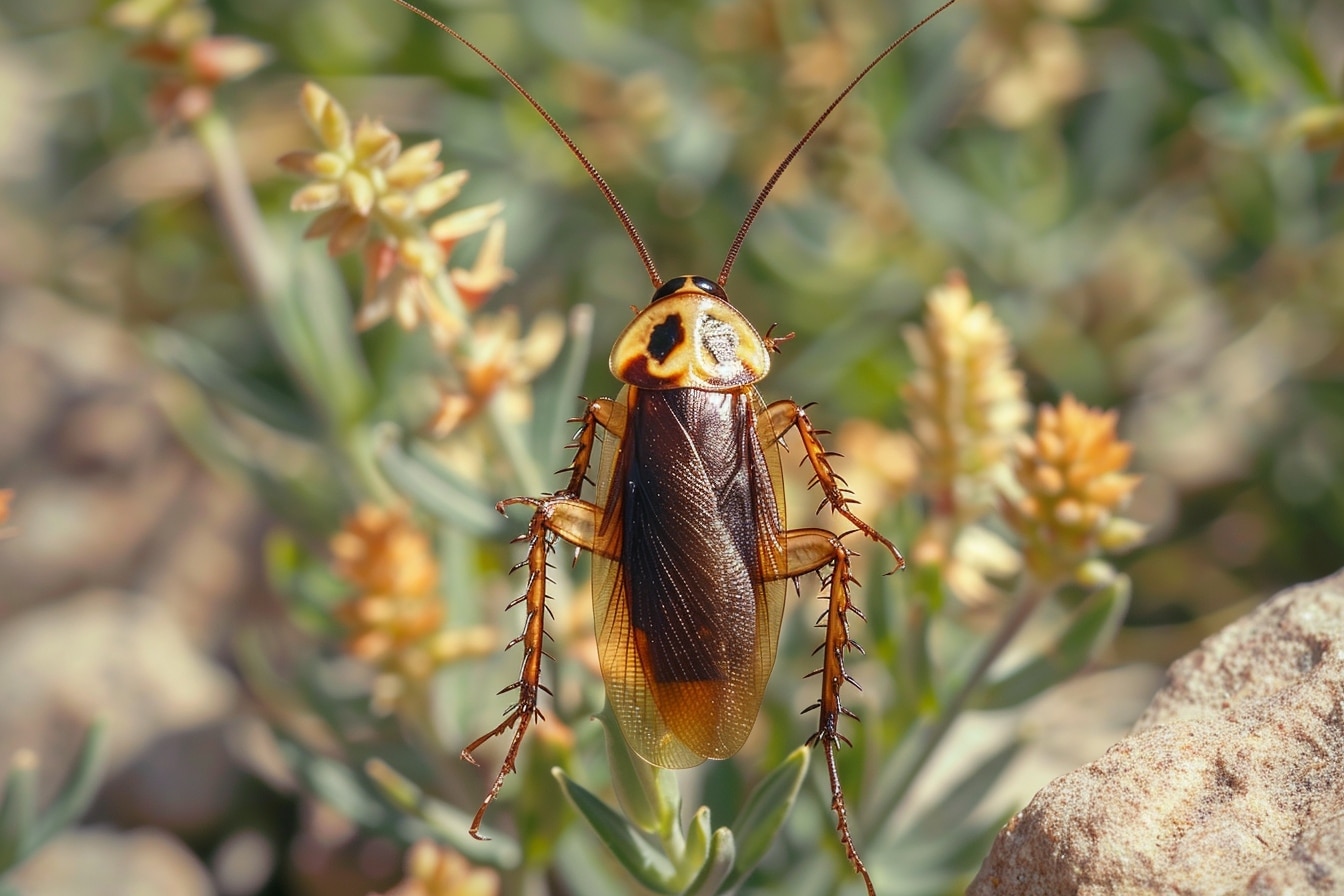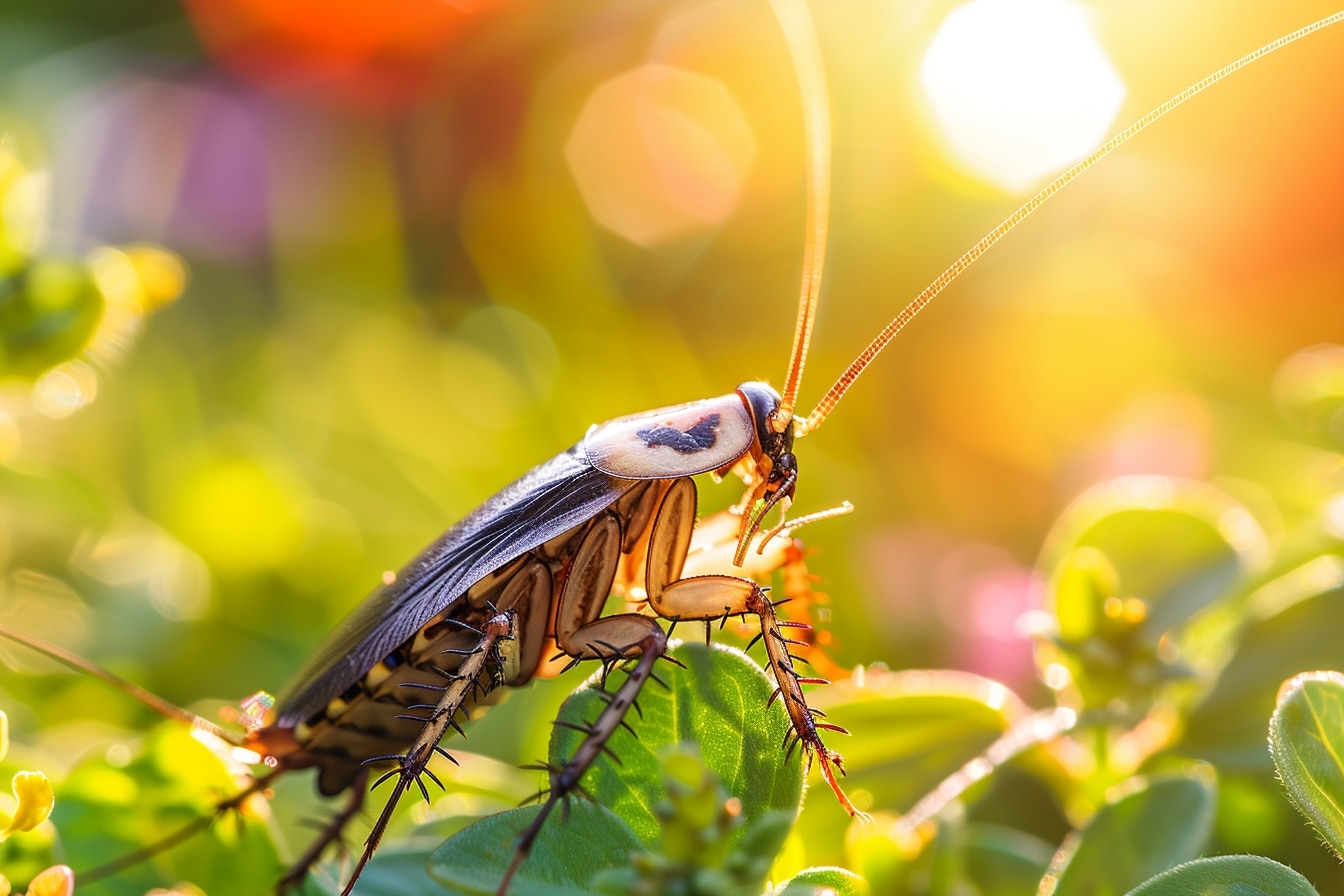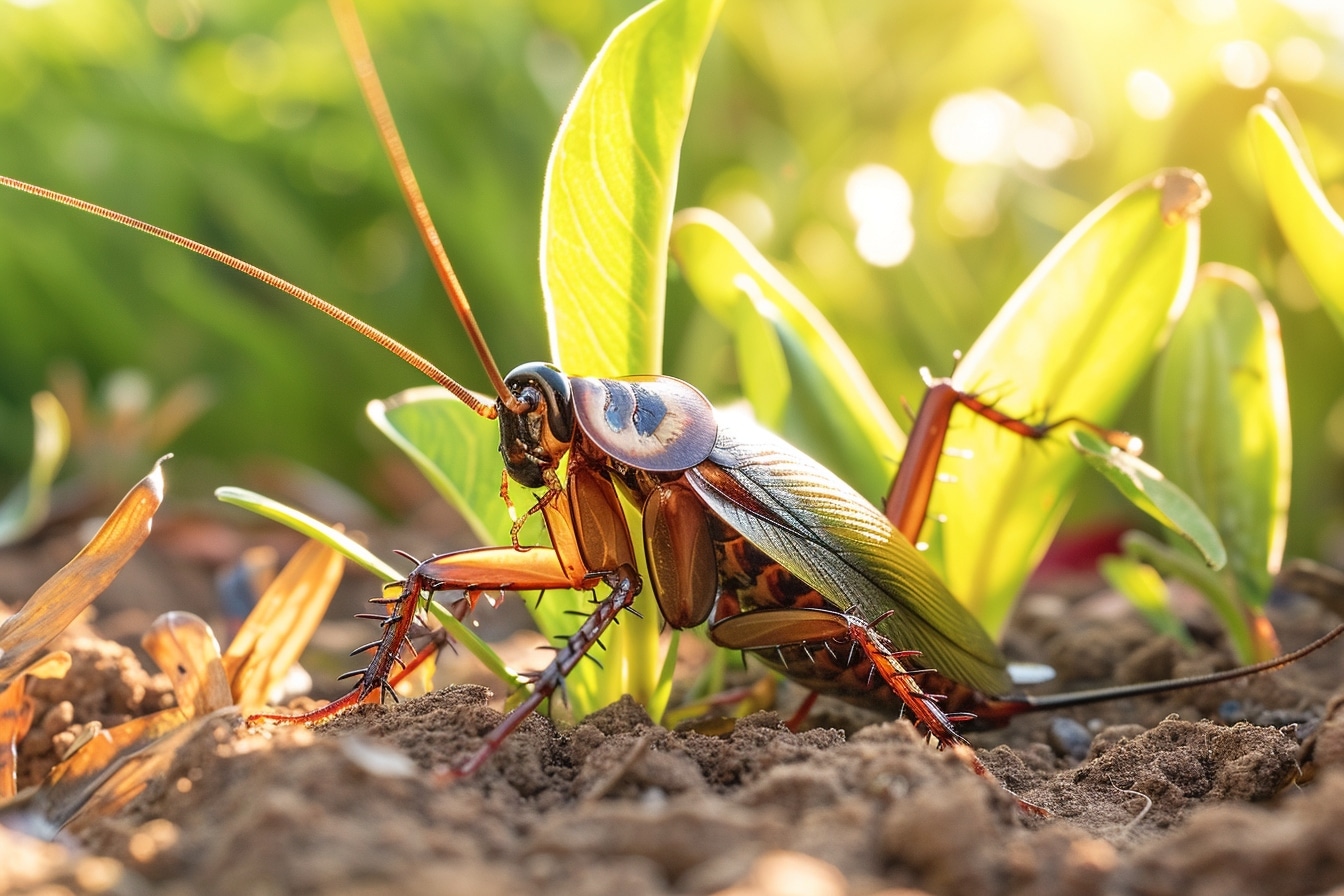Unearthing the Impact: How Climate Change is Reshaping the Life of Garden Cockroaches

Discover the surprising impact of climate change on garden cockroaches and how these little creatures are adapting to new environmental conditions. Dive into the heart of this fascinating evolution to better understand the importance of preserving biodiversity in the face of current climate challenges.
Garden cockroaches in the face of climate change

Garden cockroaches, these fascinating and often feared little insects, are not spared from the effects of climate change. Indeed, rapid and drastic changes in our environment have repercussions on these insects and their natural habitat.
impact on garden cockroach populations
THE climate deregulation causes changes in climatic conditions, such as variations in temperature and humidity. These changes can have a direct impact on garden cockroach populations, affecting their development, reproduction and survival.
change in eating and reproductive habits
Garden cockroaches are omnivores that feed primarily on decaying plant matter, but also on small invertebrates. With climate change, the availability of food resources may be modified, pushing cockroaches to adapt and change their eating habits.
In addition, climatic variations can disrupt the reproduction cycle of garden cockroaches, lengthening or shortening the reproduction period. These changes can have consequences on population dynamics and ecological balance.
adaptation of garden cockroaches to new challenges
Faced with these challenges, garden cockroaches must adapt to survive. Some individuals could benefit from new climatic conditions and see their population increase, while others could be disadvantaged and become more vulnerable.
It is essential to understand the adaptation mechanisms of garden cockroaches to better predict their evolution in the face of climate change and take the necessary measures to preserve biodiversity.
implication for the management of green spaces
For gardening enthusiasts like you, Marie, aware of the importance of preserving nature and biodiversity in your garden, it is crucial to take these elements into account in the management of your green spaces. Opting for environmentally friendly practices, promoting plant diversity and attracting pollinating insects can help maintain an ecological balance.
In conclusion, garden cockroaches face significant challenges linked to climate change. By understanding these impacts and acting responsibly in the management of our green spaces, we can help preserve biodiversity and protect these insects essential to our ecosystem.
The consequences of climate change on garden cockroaches

Garden cockroaches, these small and often feared insects, are also suffering the consequences of climate change taking place across the planet. Their way of life, their habitat and their population are impacted by these environmental upheavals, which causes significant changes in their presence and their behavior.
variation in garden cockroach habitats and populations
THE climate change leads to increased temperatures, changes in precipitation and weather conditions. These variations can have a direct impact on garden cockroach habitats, influencing the availability of food resources and breeding grounds. Some garden cockroaches may see their natural habitat shrink, while others may proliferate in areas where they were previously less present.
changes in life and reproduction cycles
Garden cockroaches are both resilient and adaptive insects. However, in the face of climate change, their life and reproduction cycles may be disrupted. The periods of activity, reproduction and dormancy could be modified, which would impact their ability to reproduce and ensure the survival of their species.
interaction with other species and potential problems
Garden cockroaches do not live in isolation in their environment. They interact with other animal and plant species, creating a fragile balance within the ecosystem. Climate change can disrupt these interactions, favoring certain species over others. For example, an increase in the population of garden cockroaches could lead to increased competition for available resources, which could have repercussions on other insects useful for the ecological balance of the garden.
awareness and actions to take
Faced with these challenges, it is important to raise public awareness of the impact of climate change on garden cockroaches. Concrete actions can be taken to limit the harmful repercussions on these insects and preserve the biodiversity of our gardens. The adoption of environmentally friendly practices, the promotion of the use of natural insecticides and the maintenance of an ecological balance in our green spaces are all avenues to explore to promote harmonious cohabitation between man and nature. nature.
In conclusion, garden cockroaches are not spared from the effects of climate change. Their survival and ecological balance largely depend on our ability to take these environmental issues into account and adopt responsible behavior to preserve the biological diversity of our planet.
The adaptation of garden cockroaches to climate change

View this post on Instagram
Garden cockroaches are fascinating insects that play an essential role in balancing the ecosystem. Their ability to adapt to their constantly changing environment, particularly in the face of climate change, is remarkable.
Garden cockroaches, resilient and versatile species
Garden cockroaches are known for their exceptional adaptability. Their ability to survive and even thrive in varied environmental conditions makes them resilient and versatile species. Faced with climate change, these insects have developed surprising adaptation mechanisms.
The influence of climate change on the behavior of garden cockroaches
Climate change directly impacts the behavior of garden cockroaches. Variations in temperature and humidity influence their eating habits, their reproductive cycles and their search for refuge. Some garden cockroaches may modify their travel routes to find more favorable areas depending on climatic conditions.
Adaptation strategies of garden cockroaches
Garden cockroaches are deploying various adaptation strategies to cope with climate change. Among these, we can cite:
– Thermal regulation : garden cockroaches adjust their behavior to regulate their body temperature according to climatic variations.
– Phenotypic plasticity : These insects can develop different physiological and behavioral characteristics in response to changing environmental conditions.
– Opportunistic reproduction : some garden cockroaches can adapt their reproductive cycle to maximize their reproductive success despite climatic disturbances.
The challenges facing garden cockroaches in the face of climate change
Despite their ability to adapt, garden cockroaches must overcome several challenges linked to climate change. The reduction in food resources, increased competition with other species, as well as increased periods of drought or flooding are all challenges that these insects must face.
Raising awareness of the importance of garden cockroaches in the ecosystem
It is essential to raise public awareness of the importance of garden cockroaches in the ecosystem. These insects, often unloved, play a crucial role in recycling organic matter and maintaining ecological balance. By better understanding their adaptations to climate change, we can help preserve biodiversity and the stability of ecosystems.
In conclusion, garden cockroaches show a remarkable ability to adapt to the challenges posed by climate change. Their resilience and versatility make them key players in the ecosystem, deserving special attention in efforts to preserve biodiversity.
Comments
Leave a comment